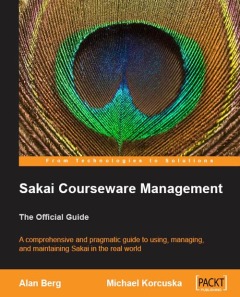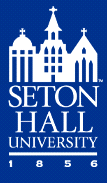Posted on May 29, 2009 by Michael Korcuska
It’s a big week for announcement in Sakai. Yesterday the newest batch of Sakai fellows were announced. The Sakai Fellows program seeks to foster community leadership and participation in all aspects of community activity through the recognition and support of exceptional contributors. This year’s Fellows were selected from an outstanding group of nominees, the largest pool we have had yet.
This year’s Sakai Fellows are (in alphabetical order):
- Ian Boston, University of Cambridge
- Jean-François Lévêque, Université Pierre et Marie Curie
- Nicolaas Matthijs, University of Cambridge
- Mathieu Plourde, University of Delaware
- Janice Smith, Three Canoes Consulting
- Steve Swinsburg, Lancaster University
Thanks to those of you who took the time to nominate your fellow community members for recognition. For more information on the Sakai Fellows program visit our wiki. So, congratulations to all of this year’s Sakai Fellow nominees and, especially, to this year’s awardees!
The 2009 Sakai Fellows Committee was Clay Fenlason, David Haines, Peter Knoop, Michael Korcuska, Seth Theriault, Anthony Whyte, Beth Kirschner, Stephen Marquard and Randy Newbrough.
Filed under: e-learning, Sakai | Tagged: e-learning, Sakai | Leave a comment »
Posted on May 28, 2009 by Michael Korcuska
I will be holding a series of webinars to provide a high-level overview of Sakai 3 and a description of you can participate in this important development for the Sakai community. I’ll be describing the concepts behind Sakai 3 and showing a brief demonstration. Most importantly, I’ll be talking about the development projects that are already underway and providing an outline of the other functional areas where we need community participation.
Continue reading →
Filed under: e-learning, Sakai | Tagged: 3akai, e-learning, Sakai | Leave a comment »
Posted on May 28, 2009 by Michael Korcuska

About a year ago Alan Berg tapped me on the shoulder (figuratively? I don’t remember exactly) at the Sakai Conference in Paris and said he wanted to write a book on Sakai. We had lunch at the Jardin des Pâtes (recommended by Jean-François Lévêque) and discussed the idea. I’m very pleased to inform you, 10 months and 400 pages later, that Sakai Courseware Management — The Official Guide is officially available! The author royalties will be going to the Sakai Foundation.
The book lists Alan and I as co-authors, but this hides a lot of detail. Alan wrote many more pages than I did. By far. And, in true Sakai fashion, many in the community contributed substantially to the effort. Margaret Warner edited much of the book for clarity and consistency of language. Josh Baron wrote a chapter on the Sakai Teaching and Learning award. Tony Atkins, Aaron Zeckoski and others reviewed substantial portions of the content. And I know I’m leaving many others out.
I’ll provide more detail in a later post (maybe I’ll get Alan to guest blog), but wanted to get a quick post out to the community before someone beat me to it…..
Filed under: e-learning, Sakai | Tagged: e-learning, Sakai | 4 Comments »
Posted on May 27, 2009 by Michael Korcuska

June 5 (next Friday!) is the early registration and hotel discount deadline for the 10th Sakai Conference in Boston. June 5 is the last day to get the group rate at the hotel and the $50 registration discount. If you’re planning to come it’s definitely time to register for the conference and book your hotel room.
We’ll be posting the full program in a few days. In the meantime the overall schedule looks like this:
Monday, July 6: Project Planning Meetings (for those involved in developing Sakai)
Tuesday, July 7: Pre-conference Workshops
Wednesday – Friday, July 8-10: Main Conference Sessions. Friday will be a focal point for Sakai 3 sessions.
Saturday, July 11: Project Planning Meetings Continued
Despite the current challenges with travel budgets at many organizations, conference registrations are actually slightly ahead of the pace of the previous US-based conference in Newport Beach. So we can expect another dynamic, informative and fun event. I hope to see you there!
Again, that’s, https://educonference.com/sakai/boston/index.php
Filed under: e-learning, Sakai | Tagged: Sakai, sakai09 | Leave a comment »
Posted on May 21, 2009 by Michael Korcuska
 There’s been a discussion on the Educause CIO listserv recently, prompted by Blackboard’s acquisition of Angel, about alternatives to commercial course management systems. Overall the discussion was quite good but I was surprised to see that some folks still operate under the assumption that “open source” means “do it yourself.” That’s one of the reasons I was pleased to see the rSmart announcement that they were supporting Sakai at Seton Hall.
There’s been a discussion on the Educause CIO listserv recently, prompted by Blackboard’s acquisition of Angel, about alternatives to commercial course management systems. Overall the discussion was quite good but I was surprised to see that some folks still operate under the assumption that “open source” means “do it yourself.” That’s one of the reasons I was pleased to see the rSmart announcement that they were supporting Sakai at Seton Hall.
Here’s the quote that caught my eye:
“The experience of using an open-source product can be daunting unless you can partner with an organization that can guide you along the path to success,” says Paul Fisher, Director, SHU Teaching, Learning and Technology Center. “rSmart has met all of our expectations. Having their support and expertise has had a tremendous impact on our ability to quickly get the software up and running and efficiently get our technologists up to speed on a completely new learning environment.”
The other reason I was pleased, of course, is that I’m always thrilled to hear of another institution joining the Sakai community. You can read the full announcement on rSmart’s website.
Filed under: Sakai | Leave a comment »
Posted on May 11, 2009 by Michael Korcuska
Blackboard has announced that it is acquiring Angel Learning. Whether this is a “good thing” or a “bad thing” of course depends on who you are and on what happens with the two companies. It is certainly another aggressive move by Blackboard to protect/increase it’s market share. When viewed in light of the acquisition of WebCT and the flurry of legal action against Desire2Learn, it certainly appears as if Bb is trying to reduce the amount of competition it faces in its traditional market, even as it goes after new territory (K12 and other product offerings). Nothing wrong with this as a goal assuming it passes muster with the relevant competition laws. As Trace Urdan (one of the best industry analysts in my view) once said of Blackboard: “They’re sharks operating in this universe where you don’t see a lot of sharks. They’re smart.”
Continue reading →
Filed under: e-learning, Sakai | Tagged: bbplusangel, blackboard, e-learning, Sakai | 2 Comments »
Posted on May 8, 2009 by Michael Korcuska
As you may know, a few folks from the Sakai community, led by Ian Boston at Cambridge, are working on a new kernel that we believe will be the basis for Sakai 3. It’s called “K2,” perhaps because it is relplacing K1 but also, perhaps, in reference to an impressive mountain.
Ian just added a nice entry to his blog. It explains some of the complexities of access control (AuthZ). But even the non-techincal reader should take note of the last bit of the post. K2 is currently using Apache Sling as its basic infrastructure. There are a lot of benefits to using existing open source software as the basis of K2 and I think Ian sums it up nicely:
… [with a small modification] its clear that with Dynamic Groups, the DefaultAccessManager in Jackrabbit 1.5 and the future Jackrabbit 2/JSR-283 will work for Sakai. The advantages of this are wide reaching since it means that much of the basic plubming code required for Sakai Kernel 2 is already present in Sling, leaving us, the future Sakai community to focus on teaching and research applications.
You can find out more about K2 here.
Filed under: e-learning, Sakai | Leave a comment »
Posted on May 8, 2009 by Michael Korcuska
 While Virginia Tech has been using Sakai for quite awhile and even hosted a (fantastic!) regional Sakai event last year, they recently made an official announcement that Scholar (their local name for Sakai) will fully replace Blackboard on Campus by Fall 2010.
While Virginia Tech has been using Sakai for quite awhile and even hosted a (fantastic!) regional Sakai event last year, they recently made an official announcement that Scholar (their local name for Sakai) will fully replace Blackboard on Campus by Fall 2010.
You can download the announcement here: Scholar to replace Blackboard.
There are some great quotes from faculty members and staff in the announcement. Here’s a sample:
Klaus Elgert, professor of Biological Sciences, remarked, “The launching of Scholar as the primary course management, collaboration, and learning system for the university community heralds a new era of e-scholarship.
and
Susan Clark, associate professor and director of the Didactic Program in Dietetics, recognized that “Scholar’s capabilities to create wikis, post blog entries, online chatting between students and faculty, and much more multimedia capabilities including uploading video podcasts is more seemingly compatible with how students prefer to communicate.”
Congratulations to the entire Virginia Tech Sakai team!
Filed under: e-learning, Sakai | Tagged: blackboard, Sakai, virginia tech | Leave a comment »
Posted on May 5, 2009 by Michael Korcuska
The European Sakai Conference in Stockholm has just kicked off. There’s a great program and a terrific turnout including participants from North America and Australia. You can see the sessions on the conference wiki or follow it on twitter using #eurosakai09.
That’s all for now….
Filed under: Sakai | Leave a comment »






